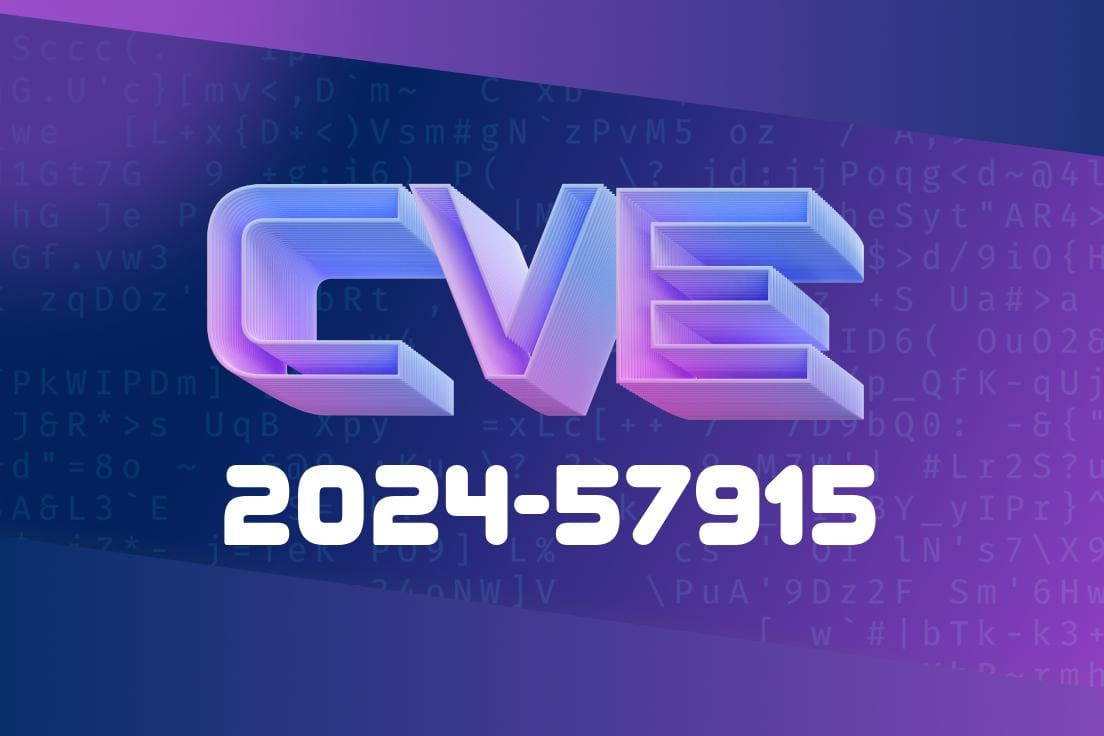---
Introduction
Every year, thousands of Common Vulnerabilities and Exposures (CVE) IDs are published to help the cybersecurity community track flaws in software or hardware. Sometimes, though, a CVE entry gets rejected or withdrawn—even after it’s been published. This is the case for CVE-2024-57915. If you’re searching for this vulnerability trying to figure out if your systems are impacted or how to exploit it, keep reading to get the real story.
---
What is CVE-2024-57915?
When you see a CVE ID like CVE-2024-57915, you may think it points to a serious bug or an exploit waiting to happen. However, not all CVE entries are what they seem. Some get published by mistake or for issues that aren’t real security threats. In these cases, the responsible organization—called the CVE Numbering Authority (CNA)—marks the entry as "REJECTED" or "WITHDRAWN."
CVE-2024-57915 falls into this category.
---
According to the official CVE entry
> REJECTED
>
> Reason: This CVE ID has been rejected or withdrawn by its CVE Numbering Authority. Additional explanations can be found at https://cve.mitre.org/about/faqs.html#cve_entry_rejected.
This means there is no exploit, vulnerability, or risk linked with this CVE. The reasons for a CVE rejection can include:
The software vendor or project fixed it before release or decided it wasn't actually a problem.
It's a normal part of managing a giant public vulnerability database.
---
Review: The CNA reviews the flaw to confirm if it is real, unique, and impacts security.
3. Rejection: If the bug isn’t a real threat or is otherwise ineligible, they mark the CVE as "REJECTED".
4. Public Notice: The CVE website will show the rejected status for transparency, ensuring no one else wastes time investigating it.
---
Can You Exploit CVE-2024-57915?
No. Since this CVE was rejected, there’s nothing to exploit. There’s no security flaw connected to this identifier. Any claims or "exploit code" circulating in blogs or forums mentioning CVE-2024-57915 are either misunderstandings or scams.
Here’s a "mock" code snippet that shows what you’d find if you searched for this vulnerability in a database or a security scanner:
def check_cve_2024_57915():
print("CVE-2024-57915: REJECTED")
print("This CVE ID was withdrawn; no action is needed.")
check_cve_2024_57915()
If you ran this, you'd just see
CVE-2024-57915: REJECTED
This CVE ID was withdrawn; no action is needed.
---
What If You’ve Seen Alarming News About CVE-2024-57915?
Sometimes, blogs or even automatic scanners will show scary results about vulnerabilities that are no longer valid. Always check the official MITRE CVE site for the current status. False alarms waste your time and can lead to confusion.
---
Want to understand more about CVE rejections or indexing? Check these out
- CVE Entry Rejected - MITRE FAQ
- Official CVE Record for CVE-2024-57915
- How to interpret CVE records
---
Conclusion
CVE-2024-57915 is not a real vulnerability. Its entry was rejected by the CNA, meaning you don’t need to patch or worry. Still, it’s a great lesson: Always double-check vulnerability reports using official sources before panicking, updating, or changing your systems.
Timeline
Published on: 01/19/2025 11:52:36 UTC
Last modified on: 02/13/2025 16:16:43 UTC
